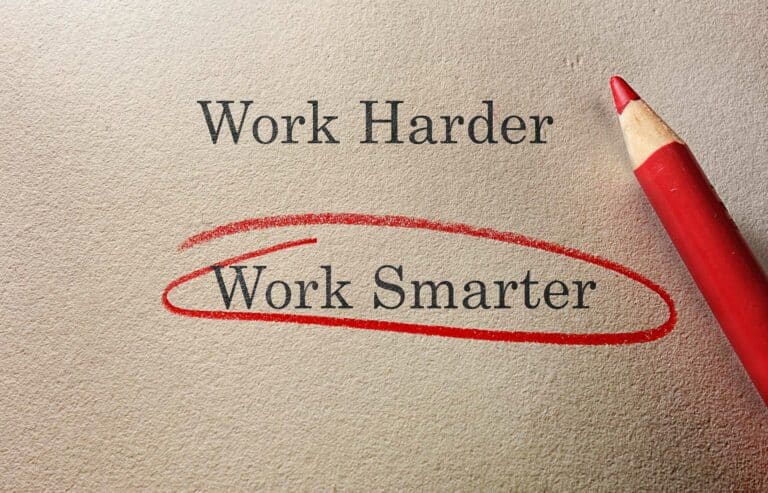Hello, Leading Ladies! It’s AliceAnne Loftus, and today, we’re tackling a topic that many of us would rather avoid but can’t escape—how to have difficult conversations. Whether you’re in the office, at home, or anywhere in between, life is filled with moments that require us to have challenging dialogues. But here’s the good news: These conversations can be transformative if approached the right way.
Why Difficult Conversations Are Inevitable (and Necessary)
Let’s face it: difficult conversations are a part of life we can’t avoid. But why are they so crucial? Why can’t we just sweep things under the rug and move on? Let’s dive into why these tough talks are inevitable and necessary for our growth and well-being.
- Building Stronger Relationships: Being transparent and honest are the cornerstones of any meaningful relationship. Difficult conversations allow you to clear the air, set boundaries, and deepen your connections with others.
- Personal Growth: These conversations challenge you to articulate your needs, set boundaries, and stand up for yourself. They’re like a gym workout for your communication skills!
- Conflict Resolution: Unresolved issues don’t just go away; they fester and grow. Addressing them head-on is the only way to find a solution and move forward.
The Mindset Shift: From Dread to Opportunity
The thought of a difficult conversation often fills us with dread. But what if we could shift our mindset to see these conversations as opportunities rather than obstacles? Let’s explore how a change in perspective can turn these challenging moments into empowering experiences.
- The Power of Cooperation: Instead of viewing these talks as confrontational, see them as a cooperative effort. You’re not fighting against each other; you’re working together to find a solution.
- The Importance of Understanding: Misunderstandings and assumptions are often the root causes of conflict. A difficult conversation can clarify these, preventing future issues.
- The Gift of Growth: Both parties can learn and improve through these conversations. They’re not just problem-solving sessions; they’re growth opportunities.
AliceAnne’s 5-Step Guide to Difficult Conversations
Intro:
Navigating a difficult conversation can feel like walking through a minefield. But it doesn’t have to be that way! I’ve developed a 5-step guide to help you approach these talks with confidence and clarity. Let’s break it down.
- State What You Need: Be clear about your needs. Use “I” statements to avoid sounding accusatory. Instead of “You’ve been missing deadlines,” you could say, “I need tasks to be completed on time to meet our team goals.”
- Establish the Relationship’s Importance: Let the other person know why they matter to you. This sets a positive tone for the conversation. Instead of diving right into the issue, you could start with, “You’ve been a valuable member of this team, and I appreciate your contributions.”
- Convey Your Message: What’s the core message you want to get across? Keep it concise and straightforward. Instead of a long-winded explanation, you could say, “I’ve noticed a decline in the quality of your work, and I’d like to discuss how we can improve it.”
- Set Your Intention: Decide how you want to show up in the conversation. Stick to it. If your intention is to be compassionate, you could say, “I understand we all have off days, but I’d like to find a way to get back on track.”
- Know When to Pause: If the conversation veers off course or becomes too emotional, it’s okay to take a break and revisit the topic later. If the conversation gets heated, you could say, “Let’s take a break and revisit this when we’re both calmer.”
What to Avoid in Difficult Conversations
Even with the best intentions, difficult conversations can go south if we’re not careful. Here are some pitfalls to avoid to ensure your tough talks are as productive and respectful as possible.
- Emotional Hijacking: Keep emotions in check to avoid saying things you’ll regret. If you feel yourself getting angry, take a deep breath and count to ten before responding. Avoid phrases like “You always…” or “You never…” which are emotionally charged and often inaccurate.
- The Blame Game: This isn’t about pointing fingers but finding solutions. Instead of saying, “You messed up the project,” try framing it as “The project didn’t meet expectations. Let’s discuss how we can improve it moving forward.”
- Assumptions: Don’t assume you know the other person’s thoughts or feelings. Ask questions to clarify and understand their perspective. If you think the other person is being defensive, instead of assuming why, you could ask, “It seems like you’re upset about this. Can you help me understand what’s bothering you?”
Conclusion
Mastering the art of difficult conversations is more than just a leadership skill; it’s a life skill that empowers you to build stronger, more authentic relationships both personally and professionally. By approaching these conversations with a positive mindset, clear intentions, and a focus on solutions rather than blame, you’re not just resolving issues—you’re elevating the entire relationship. So the next time you find yourself dreading that “we need to talk” moment, remember: you’re not just leading the conversation; you’re leading your life. Let’s make it a meaningful one.
Want to learn more about having difficult conversations? Book a Call with me, and let’s get you started on leading meaningful dialogues in your life.






